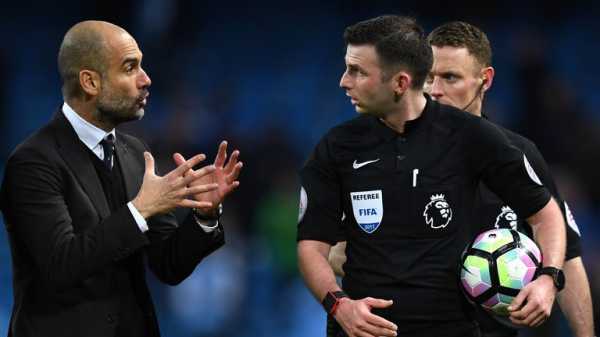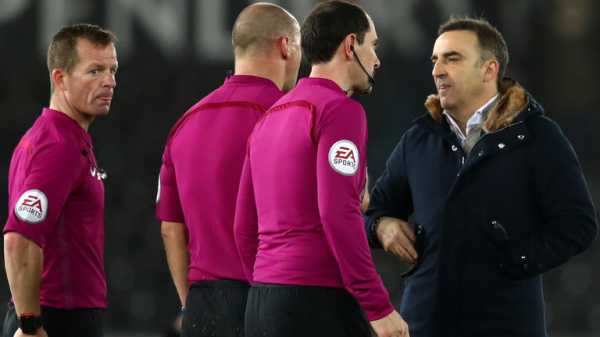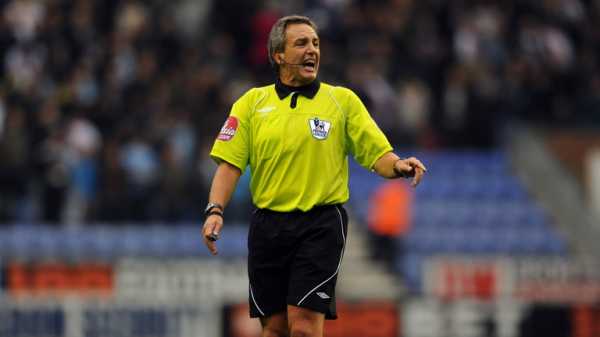
If you say you haven’t moaned about a referee, you’d be lying.
But in this day and age of in-depth statistics, analysis and technology, just how well do officials perform week-by-week?
We got the numbers and broke them down into bite-size chunks. You may be surprised…
The man in the middle
According to the PGMO (Professional Game Match Officials), Premier League referees make on average 245 decisions, almost three times more than average player touches ball (90). That’s one decision every 22 seconds.
Sixty of these decisions are technical (goal kicks, corners, throw ins), leaving 185 decisions to judge physical conduct or disciplinary actions.

Of those 185, 28 are visible decisions where action is taken (fouls, restarts), and 157 are non-visible, where play continues.
Refs make on average two mistakes per game. Meaning they are correct 99.2 per cent of the time.
Assistant referees
Many supporters would struggle to give the name of a single assistant referee in the Premier League, but the outcome of a game can hinge on their decisions.
Assistants make an average of 110 judgements, including offside technical and disciplinary decisions.

Just 39 of these are pure offside decisions, with just five of these resulting in an offside flag going up. Their accuracy is on average 98 per cent.
Are refs fit?
Sir Alex Ferguson was handed a two-match touchline ban in 2009 for branding referee Alan Wiley “unfit” following a draw against Sunderland.
The refs weren’t too happy, and officials’ fitness regimes have been widely publicised since.
On average, referees run 9.7km just below the average player distance run of 9.8km. Anthony Taylor’s distance at Arsenal v Chelsea on January 3 was 11.6km.

Referees are making 70 per cent more sprints than they were nine seasons ago, and make an average of 24 high-intensity runs per game.
The player average for distance covered at high speed (20-25km/h) is 575m. During Manchester City v Arsenal in November, Michael Oliver covered 936m at high speed.
Players sprint 160m per match on average. Graham Scott covered almost twice as much ground at sprinting speed during Tottenham v Southampton (290m).
We have seen 40 matches this season in which a referee or assistant referee has achieved a peak speed higher than the player average (30.3km/h). These are mostly assistant referees.
Referee assessment
Officials’ performance is monitored continually, and they have formal fitness tests four times a year for the Professional Game Match Officials Limited (PGMOL) and two times a year for UEFA.

Just like players, referees must prepare for the weekend games with a rigorous training regime. A typical week for referees includes a light recovery session the day after a game, and three days of intense sessions before the Saturday game, including weight training, high-intensity work and speed training.
Everything is monitored, reviewed and reported back to the officials, so the Premier League’s top refs can be at the top of their game each weekend.
Follow the debate all week on SSN and on our digital platforms at www.skysports.com/supporttheref
Also See:
Sourse: skysports.com






